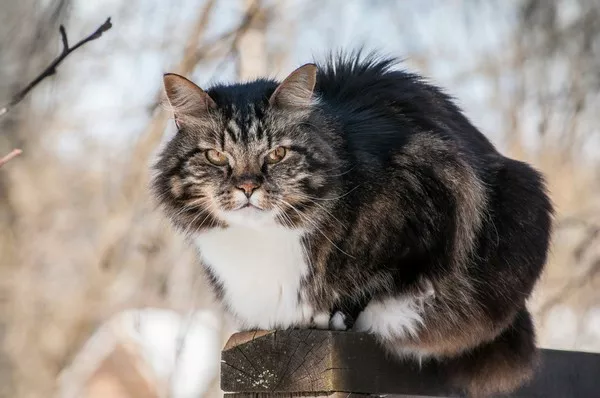A worldwide scarcity of feline vaccines is compelling animal shelters in New South Wales to refuse entry to cats and kittens, prompting the suspension of vaccination prerequisites for holiday boarding facilities in anticipation of the upcoming Christmas season.
Various animal welfare entities and rescue organizations have been compelled to decline cats and kittens due to a global shortage of the F3 vaccine. This vaccine is crucial in safeguarding felines against feline panleukopenia (cat parvovirus), feline calicivirus, and feline herpesvirus (cat flu). Classified as a “core” vaccine, it is especially vital for cats with an unknown vaccination history, such as strays and kittens, with recommended boosters administered every one to three years throughout their lives.
Dr. Diana Barker, President of the Australian Vet Association, acknowledged that delaying the annual booster shot for cats with regular veterinary visits carries minimal risk. However, she emphasized the challenges faced by kittens and strays, highlighting the importance of herd immunity, especially when dealing with stray animals.
With the global vaccine shortage impacting the availability of F3, animal boarding facilities, shelters, and pounds in NSW have been granted an exemption from vaccine requirements until January 31. The state’s Department of Primary Industries has urged these facilities to adopt a “risk-based approach” in managing potential outbreaks.
Aprile Wright, owner of an animal boarding facility near Blayney, stated that the vaccine shortage has not significantly affected her holiday boarders. She clarified that as long as animals have been previously vaccinated, she can still accept them. However, she highlighted the necessity of an individualized approach, considering factors such as age and vaccination history.
The vaccine shortage has also affected canine leptospirosis vaccines (C2i and C7) for dogs, but Danielle Haase, director of Diesel & Blue Doggie Daycare, indicated that regular reminders have helped clients stay updated on vaccinations. This shortage is not classified as critical and is gradually easing.
Dr. Liz Arnott, Chief Veterinarian for RSPCA NSW, emphasized the crucial nature of timely pet vaccinations in preventing the spread of infectious diseases. She urged pet owners to adhere to vaccination schedules, citing substantial cost savings and reduced distress for both owners and animals.
Despite RSPCA NSW closing its doors temporarily in October to limit cat intake during the vaccine shortage, shelters remain full, with numerous cats and kittens admitted in November. Arnott disclosed that RSPCA NSW is prioritizing vaccines for animals in higher-risk categories, temporarily refraining from offering vaccines to privately owned cats.
The anticipated resolution to the vaccine shortage is expected in mid-December, with supplies returning to normal levels by April 2024, according to Arnott. The impact of the shortage underscores the challenges faced by animal shelters and the importance of public awareness regarding the necessity of timely pet vaccinations.

























